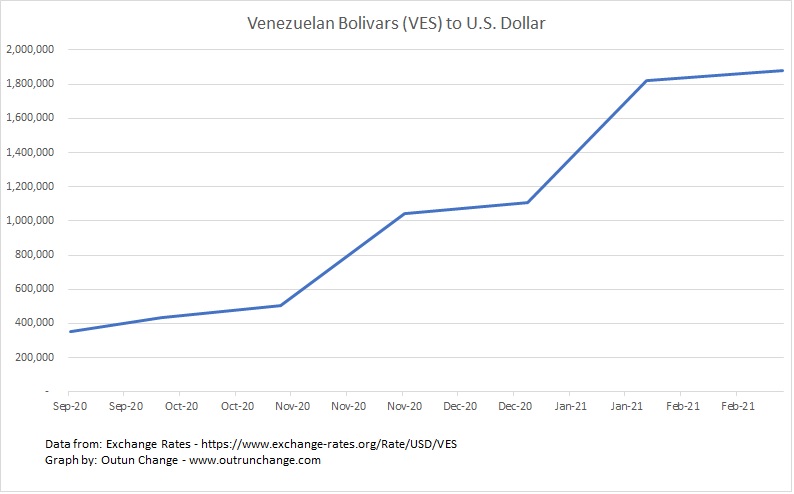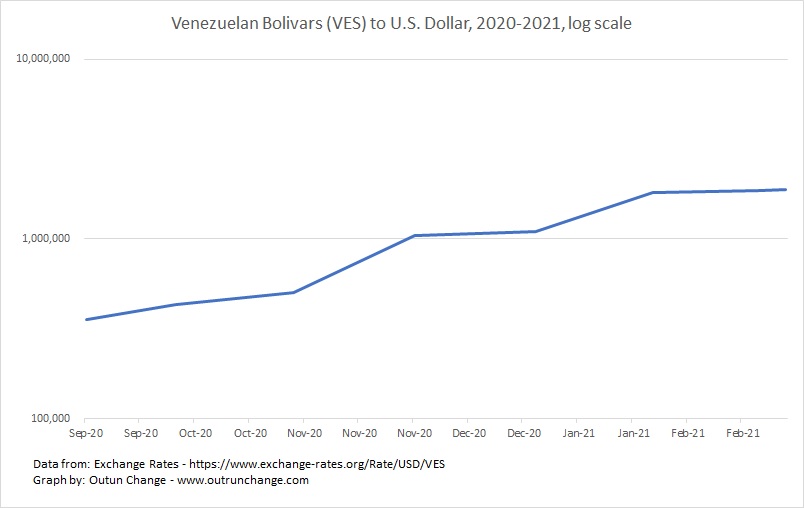Socialism in Venezuela has produced the expected results – poverty, a collapsing economy, and people fleeing for their lives. Twenty some odd years of socialism has also produced another foreseeable consequence – hyperinflation.
Let’s track the exchange rate of Venezuelan Bolivars to US dollar as an indicator.
According to Exchange-Rates.org, here is exchange rate of the Venezuelan bolivar to dollar from 9/11/20 through 3/5/21. Here is the month end data:
| Sep-20 | 355,251 |
| Sep-20 | 433,137 |
| Oct-20 | 505,912 |
| Nov-20 | 1,042,057 |
| Dec-20 | 1,105,830 |
| Jan-21 | 1,820,203 |
| Feb-21 | 1,866,796 |
| Mar-21 | 1,879,751 |
To see that visually, let’s graph the exchange rate:

That shows something in the range of a fourfold increase in about five months. Ouch.
We are soon going to see graphs with lines that blow your mind, going horizontal for a while, then taking a turn before going vertical.
To make sense of that kind of a hyperinflation world, we need to move into the realm of the showing graphs on a logarithmic scale. We usually draw graphs so that every line is an arithmetic increase. Going from 1, to 2, to 3, and so forth. On a logarithmic scale every line is an increase by a factor of 10.
On a log scale the lines would be 1, then 10, then 100, then 1,000. What this does is allow you to see trends.
Something that is increasing by factor of 10 over time would look like a straight line on a log scale. On a typical arithmetic scale it would be horizontal with a slight increase, then turns a corner, and then seems to go straight up.
Now let’s look at that accelerating exchange rate on a log scale:

If you sort of eyeball that line, it is sort of seems like a straight line. This means inflation rate is accelerating at a consistent percentage. It is an astronomical percentage, yet it is accelerating on a somewhat consistent percentage basis.
The log scales will be much more valuable as we expand our time horizon.
Oh yeah, how moral is an economic system in which you lose about 80% of the purchasing power of your currency in just over 5 months?
See also:

0 Comments